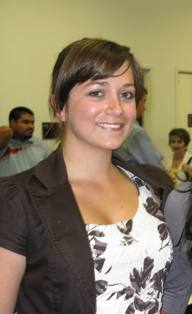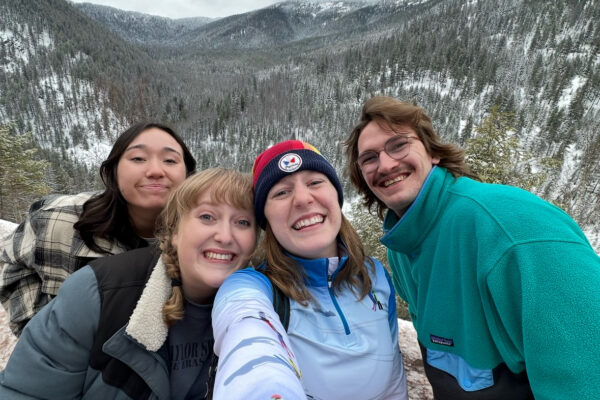Hailey Giczy ’09 has won the Raymond J. Cunningham Prize for the Best Article by an Undergraduate for her published senior thesis, “The Bum Blockade: Los Angeles and the Great Depression.” The
American Historical Association
, the largest and most important organization of professional historians, awards the Raymond J. Cunningham Prize to the best article written by an undergraduate student and published in a history department journal.
“This prize is a major national award from the nation’s premier historical organization, evidence that the History program is a vital part of Chapman University’s rise to national prominence,” says Jennifer D. Keene, Ph.D., professor and Chair of the History Department.
The award-winning paper explores the
“bum blockade,”
a Depression-era effort led by the Los Angeles Police Department to rid the city of dust bowl migrants and stop them from entering the state. It was short-lived, but had a considerable popular backing. Giczy argues that the blockade reflected California’s willingness to go to considerable and even unconstitutional lengths to preserve its “imagined” view of itself as a sort of middle class utopia against what was widely seen as a tide of unwashed Oakies flooding the state.[youtube=http://www.youtube.com/watch?v=zIZDMtRDCxI&feature=player_embedded]
Giczy and her senior thesis mentor, Leland Estes, Ph.D., professor of history, will attend the American Historical Association’s annual awards banquet in Boston this coming January to receive the award. The winning author and the winning journal each receive a $200 prize.
The article was published in the first issue of the History Department’s award-winning on-line historical journal Voces Novae. The article can be viewed in
Voces Novae
. Giczy’s article previously won the Phi Alpha Theta Nels Andrew Cleven Prize, another prestigious national undergraduate award.
Giczy did a considerable amount of primary research, and she was aided in this research by a special grant from the Chancellor’s Office and the Tenya Hills Award from Alpha-Mu-Gamma (Chapman’s chapter of Phi Alpha Theta). She used memoirs, newspapers, magazines, and also spent a considerable amount of time in the archives of the Los Angeles Police Department.





I wish Ms. Giczy would have had the opportunity to speak to someone like my father (now deceased) who was a manual laborer and happened to be working in a gas station at the time in Los Angeles. He told me that California was not affected at first by the Big Depression and his employer would offer incoming migrants a free tank of gasoline if they would just turn their vehicles around and leave the state. The influx of migrants from the Dust Bowl to the “Land of Milk and Honey,” who were willing to work at much cheaper wages than those already living here because they needed work, quickly brought the same economic downturn being experienced by the rest of the country. By the time I was born California was deep in the depression, but I never knew how poor we were until I was a grown man. I had just assumed that it was a natural state of being and that everyone pretty much lived the way we did, except for those in Hollywood films.